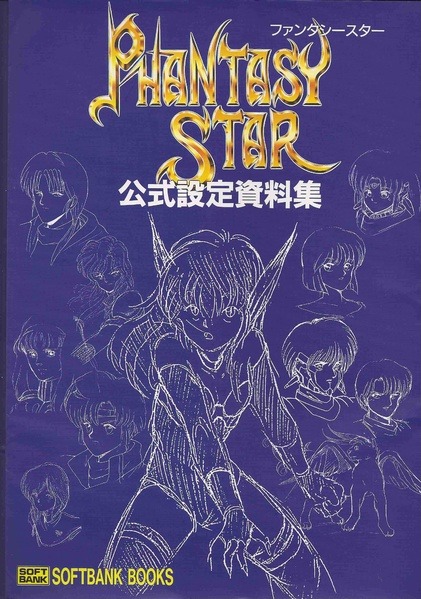
If you’re a serious Phantasy Star or Lunar fan, you’ll be like a kid in a Naula cake shop at Rebecca Capowski’s website.
Thanks to Rebecca, English speakers now can immerse themselves further into these worlds they love through novels, director interviews, dev-team discussion, and even more accurate translations of the games themselves.
Moreover, it’s clear Rebecca is truly passionate about these games, their characters, and their stories. You won’t find one ad on her site, nor squeals of “like and subscribe!” assaulting your senses. Translation is grueling, slow work, and the amount of content she’s translated simply for hobby is mind-blowing.
She also officially worked on the English translation of Phantasy Star Online 2, credited as a Language Specialist!
Whether you’re into in-game lore enough to want to finally learn what “AW” means, or you simply want to better get to know your favorite characters, check out her website: ScenaryRecalled.com
Found in Fanslation: Ep 04 – Text Adventures with Rebecca Capowski
Part 1: Phantasy Star and LUNAR (previous page)
Part 2: Translation vs. Localization and Learning Japanese (this page)
TRANSLATION VS. LOCALIZATION
How do you define a translation compared to a localization?
Editor’s note: The sentence above is one of many reasons I decided to learn to romhack and retranslate PSIV.
There are more formal definitions, but in practice, in a localization, the plot is taken as a loose framework for an original script in the target language. The writers can draw from the script in the source language but are under no obligation to follow it; lines, plot elements, and even characterizations may be altered at will. The appropriateness and suitability of this approach varies depending on the work and audience, but I see a lot of videogame fans (many without any experience in the language pair) argue that localization is the only way “anything of value” can be extracted from the original material, or that the two languages of Japanese and English are so alien that it’s utterly impossible to translate between them, and I can’t agree with that.
Translation from Japanese to English does lend itself to stiltedness, since the two languages do have different ways of communicating nuance, emotion from the speaker, etc. — but stiltedness is largely the fault of the translator and a lack of skill, not the Japanese language itself. Detecting tone and nuance and incorporating that into your translation is part of the job.

Also, we can’t forget that until relatively recently (well into the internet age), Japanese language instruction was very limited and undeveloped in the English-speaking world, and many translations from Japanese to English were therefore produced by poorly taught, limited translators.
The general public took a look at these works and concluded, “Oh, well, that must be just how the Japanese language sounds” — thinking that either the language was inherently limited or that the original writers were of poor quality, not that the translators were deficient. This outlook predominated during the formative gaming years of many of the industry’s foremost taste-makers, so this attitude has never gotten out of the gaming field fully.
I also don’t think that there’s a general understanding of how different the localization approach to translation in gaming is from typical approaches in other fields. If I changed characterizations when translating a novel, or added paragraphs or conclusions to a scientific paper, my work wouldn’t be accepted, and I’d probably lose my working relationship with that client.
Many gamers argue that it’s impossible to bring works from Japanese to English without a very liberal localization approach — but most other fields get along without it just fine.

I’ve worked on official localizations, and there are situations where some latitude is in order – and there are many great lines & moments in gaming that come from improvisation! (See: “COOOOOOOOOME BAAAAAAAACK” etc.) But I can’t agree that throwing out the original script is something that’s unilaterally better or necessary, and the biggest champions of that viewpoint tend not to have any experience in the language field.
What other classic videogames or videogame-related works do you hope to experience in English someday?
Oh, man. There’s a lot I’d like to see accessible to an English-speaking audience.
I have a mostly complete script for the Super Famicom Angelique, which was the very first otome game, but it would take a tremendous amount of work to insert, and the game is very…staid?…traditional, I suppose, compared to modern offerings in the genre. It did, however, understand right out of the gate how much talking figures into dating, and how dating games are about getting to know a person. I think they did a good job with using dialogue to characterize – even rote lines are reworded to reflect the character’s manner of speaking & personality.
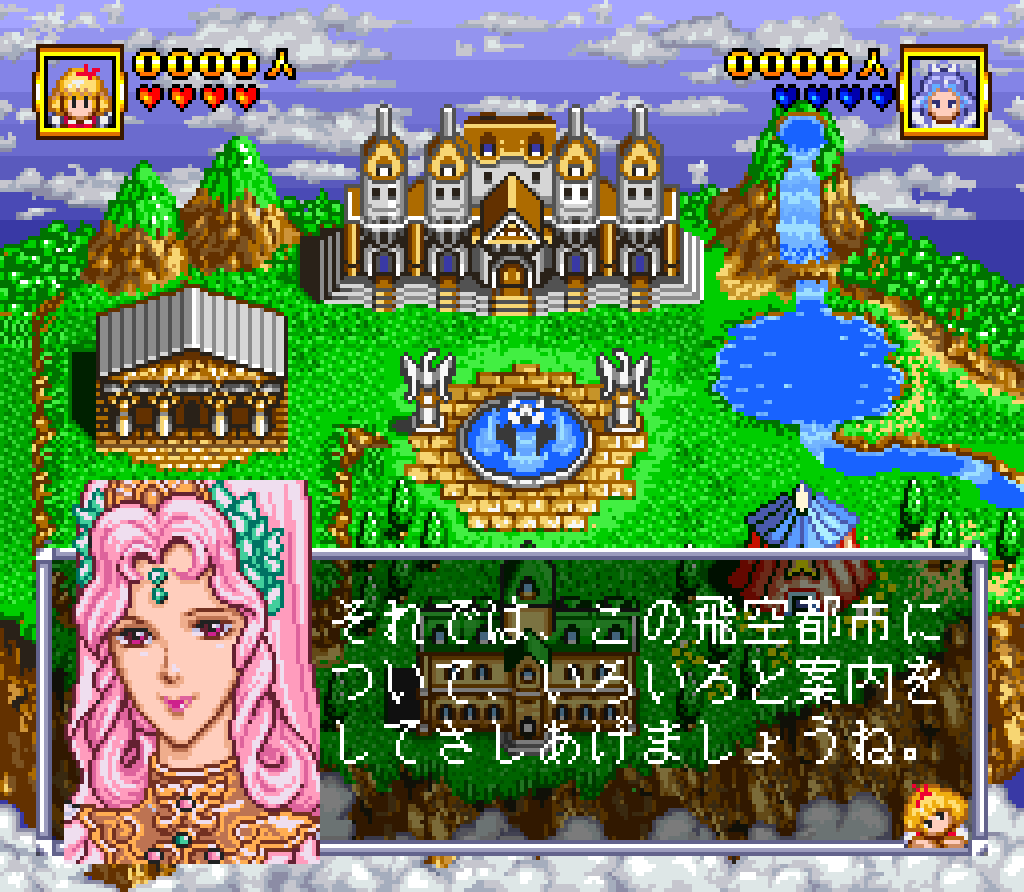
We need to get at least one of the Boku no Natsuyasumi (My Summer Vacation) games in English. You play as a young Japanese boy in the 1970s spending an extended summer vacation in an isolated, natural setting. You spend your days collecting bugs, hunting for treasure in the backyard, getting caught up in adventures with neighborhood kids or little dramas with the neighbors (someone’s trying to launch a rocket, or get back together with an old sweetheart, etc).
I played 2 a couple years ago, and it reminded me of A Christmas Story in that it depicts a very specific time and place but, by being so faithful to one kid’s experience, taps into these universal childhood feelings. It has a great understanding of how kids explore their world and really draws you into that mindset, where the littlest things become big discoveries.
Otherwise, I’m generally drawn more to the stranger stuff in gaming than the titles that are all-around traditionally good. I’ve played a bit of Mystic Ark: Theatre of Illusions, a direct sequel to the SFAM RPG Mystic Ark, which is itself the quasi-spiritual successor to The 7th Saga.
Theatre of Illusions, though, while it does kind of continue Mystic Ark’s story, is actually a Wizard of Oz-like tank-controlled adventure game with some combat tacked on. It’s a trademark product of those weird 32-bit-era decisions, when a lot of people were still figuring out how to utilize the freedoms of 3D space and the CD medium, and it’s interesting to see it present elements from its 16-bit predecessor in this completely different format.

There are a couple titles in the Japanese computer market with which I have no direct experience but I’d like to try: Ugetsu Kitan, which appears to be a phantasmagoric pastiche of Japanese horror folklore in an adventure-game format (with a distinctively more atmospheric approach from the campy, memey PlayStation incarnation), and Mirrors, a PC-88 photorealistic mystery about a rock star inspired by Dario Argento’s work. I have no idea if this stuff is, strictly speaking, “good,” but the glimpses I’ve seen on hobby sites like the fmtownsmarty Tumblr are certainly evocative. I like sites that capture distinctive moments from games unknown to the West like this and bring them to a wider audience.
There’s a Zelda II choose-your-own-adventure book where it’s revealed in the true ends that you’re actually playing as Zelda the whole time, taking up the slack for a Link who showed up late. The artwork is clever in that is appears to be Link at a glance, but if you scrutinize it, the story’s secret is staring you in the face. I discovered it around the time that discussion about having Zelda as the protagonist in a game was taking off, and I thought it was interesting that this book actually did do that very early in the franchise’s history and in a really clever way. I want to translate it, but someone will probably get to it before me, if they haven’t already.
Editor’s note: I’m not sure if this is the book she means, but this Japanese Zelda book is on her website with English synopsis.
There’s website stuff that’s lost to time. Spy Fiction, Swery’s take on Metal Gear Solid, had an online encyclopedia for world-building info that was rife with that creator’s weird attention to completely irrelevant details. I failed to save it before Spy Fiction’s Japanese site went down; a colleague, Wynward, was going to be working on it, but they’ve vanished from the scene. Then there’s stuff like Akari Funato’s blogged comments on her Lunar works. I’ve saved a lot, but she’s revamped her site several times, so I naturally wonder if there’s stuff I’m missing.

Are there any other PS– or Lunar-related works that you hope someone will translate in English eventually?
It would be nice for the whole of SPEC, the early official Sega fan magazine, to be scanned and the Phantasy Star comics there translated and available online as a complete set, even though the quality of the individual comics varies wildly. What I’ve read of Out Side Saga, the PSI sequel comic, is pretty dreadful – it had very little to do with Phantasy Star and is instead just a paean to a charmless OC Kenshiro wannabe. The book also has zero respect for Alis and treats her horribly to build up the Kenshiro character.
The folks at Sega Retro do have a few issues of SPEC up, for those curious.
Can you remember any especially difficult-to-translate pieces you had to take on in the Phantasy Star or Lunar universes? Can you explain why?
This is a very odd and tangental answer: Akari Funato reworked many of the original characters from the third story of Tales of the Vane Airship, “The Memories I Confess,” into Under the Rose, a Victorian manga about an earl with a very large and vicious family which became her grand opus.
I’ve had a nearly complete translation of the first volume in storage for the longest time, but I can’t move myself to finish it. It’s perhaps the most beautiful, painstakingly-drawn manga I’ve seen, but the main characters are so rotten that I find it hard to keep them company. It’s a skilled and ambitious work, and it deserves a larger platform, but I just have never cared for Game of Thrones-like stories where most everyone is irredeemable. I enjoyed seeing Morris again, though, who is in the plot pretty much unchanged as an Oscar Wilde analogue.
A more prosaic answer would be the Lunar songs, for reasons discussed below.
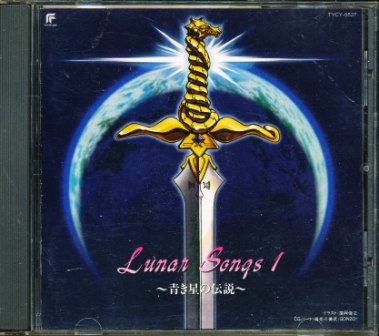
Is there anything major in the English PS games that you would have translated or interpreted differently?
The obvious answer here is to make the name translations consistent across games: Noah/Lutz, Lassic/La Shiec, etc. That’s a very obvious element that’s going to hang up a lot of people and has caused confusion.

I’m afraid I haven’t looked over the original scripts of PSI or IV. I have looked at II’s, though, and while I didn’t completely pick it over, I found that the official translation of what I read was quite accurate.
Do you have any opinions regarding fan-made retranslations and relocalizations of games that do have an official English release?
I think retranslations are useful just to know what the creators’ original intentions were and how they stack up to what we got, for good or ill. For example, I’m looking at the [Japanese] script to Silver Star Story right now, and in many ways, it just doesn’t seem to me to have as much life. On the other hand, you don’t have the scatological jokes or the dated pop-culture references that break the mood — and you have to take this as a whole, as it’s all borne of the same irreverent approach to translation.
(Incidentally, I don’t think Victor Ireland and Working Designs get enough credit in pioneering the modern approach to game translation of taking the skeleton of the plot and basically spinning a brand-new script. Ireland’s abrasiveness won him a lot of foes — particularly in the current industry climate, where everyone knows everyone and a close, chummy working relationship between devs and media is expected — but he did trailblaze the current predominant industry direction… again, for good or ill.)
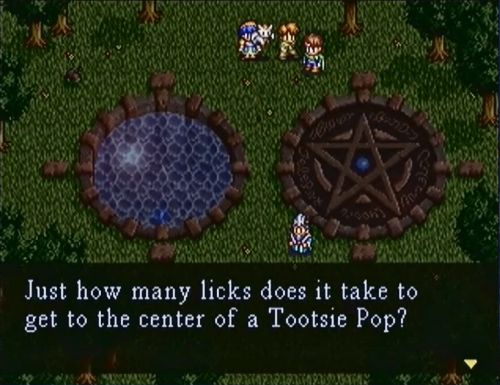
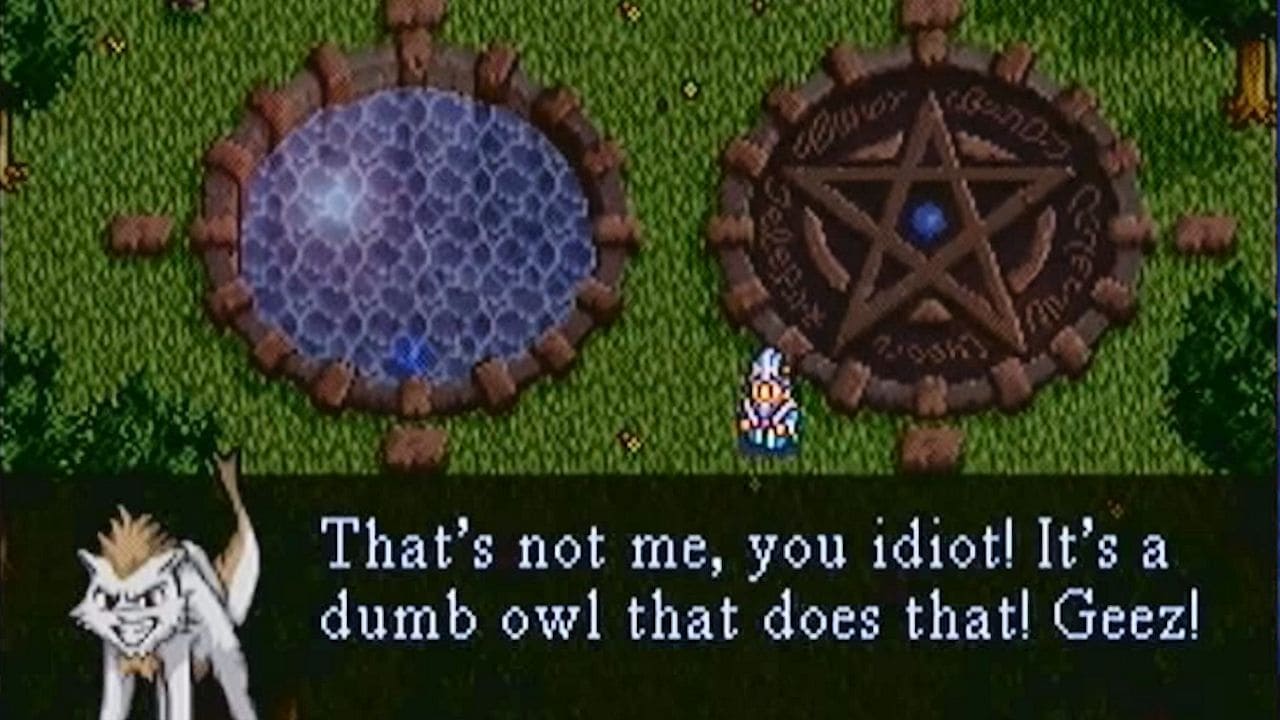
LEARNING JAPANESE
How did you initially become interested in Japanese, and how did you become fluent enough to translate all these works?
The first language tool I had was a Berlitz cassette tape my mother purchased for herself, actually, to help communicate with customers in her hotel-keeping job. I had an aptitude for languages, and it was just interesting to tackle another language that wasn’t really offered formally in the U.S. education system at the time. I can’t recall how much of my initial interest was paired with my love of videogames, actually — but I did, due to family issues, end up in a situation with a lot of time on my hands, so this presented an opportunity for my studies to become more serious. A Barnes & Noble opened up in my area around this time, giving me access to a greater range of learning materials.
This period also coincided with a time where the internet was first making it possible to order these weird books about games from overseas. My first order was Yoshitaka Amano’s artbook Dawn (from a U.K. supplier, of all places) because I had heard about it from a U.K. fanzine, and which I got because it contained his Final Fantasy IV work. In any event, the prospect of being able to understand new game stuff from Japan itself was a great study incentive.

After this point, I just kept hammering away until I could pass the N1 level of the Japanese Language Proficiency Test, which is the standard for evaluating fluency. It was tough moving from the intermediate level to a more advanced level of fluency, as not much was available in the way of learning materials at that level, but publications for the JLPT helped.
What advice do you have for someone who loves classic videogaming and wants to begin learning even just parts of the Japanese language?
My first advice: Don’t translate songs as practice. Songs are such a big, shiny trap for new translators, as they’re short and they’re an accessible medium even to folks not well-versed in a language. They also, however, include a lot of figurative language and non-standard grammatical constructions that are gonna trip you up at an early (or even later!) stage.
Think about, for example, “Thriller.” Routinely named the greatest music video of all time; known to most Americans. And yet: even the title of the song might prove a minefield for a translator. In this context, does it mean a person who thrills, or the movie genre? It might matter, depending on the target language! What does “killer diller” mean? It’s just a nonsense phrase there for euphony, but you might run yourself in circles trying to find a literal meaning for it. Do you translate that Vincent Price monologue in the middle?

These questions might not sound serious to someone not in the profession — but you have to answer them in the course of a translation, dang it!
In brief, if you start with songs, you’re gonna make mistakes and get discouraged. If you want to try your hand at gaming translation, start with stuff that consists of straightforward, complete declarative sentences. Promotional websites offer a lot of this. (The conversational language used in interviews will be too complex to handle at the start of your studies.)
The second would be to know your style of learning. I’m a text-based learner; videos test my patience. For someone else, that’s not going to hold true. Of course, there are skills that require a certain format – learning to speak a language is going to require an audio component, of course – but for your general studies, stick to the method that makes it easiest for you personally to absorb the information. Much advice on learning in general insists that a certain format is inherently superior or inferior, but you can’t make blanket recommendations on that note – it’s gonna vary from person to person.

Editor’s note: My old friend I used to play fighting games with is now a well-known language tutor, featured in the New York Times as a polyglot, a person with a gift for learning hundreds of languages. He translated for our Japanese guests we had here for Season’s Beatings, our fighting-game world championship.
I took a year of Japanese with him after the first time I went there, and I recommend him out to anyone interested in learning any foreign language. I’m not paid for this endorsement of FLR, he’s just an amazing person, and his learning system is conversational and infinitely better than learning in a classroom.
One important thing to note: Videogames are an incomplete way to learn vocabulary. There are terms you’ll need to know for modern everyday speaking, writing, and reading that just won’t show up in games. Try using the vocabulary lists out there for the Japanese Language Proficiency Test — start at the bottom, N5, and go up — to make sure you’ve got a good vocabulary foundation. Even then, there are common terms that won’t get through your head without encountering them in context, so reading just everyday stuff is important as well.
Finally, these are older books, but I found Mangajin’s Basic Japanese Through Comics series (two volumes plus Japanese the Manga Way) to be an excellent resource. It takes manga panels, explains their context, and breaks down every single word in the panel to give a thorough understanding of the meaning of the dialogue.
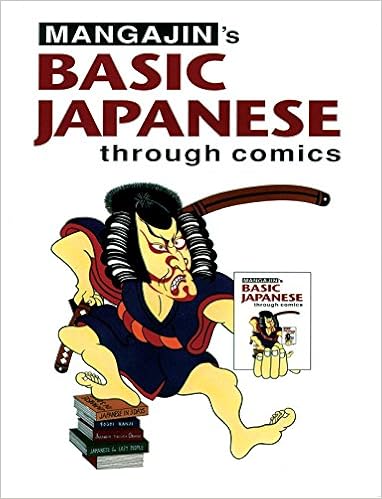
The books are broken into short, fun “lessons” of four to six pages, each focusing on a single word or concept. The comics featured are older (from the eighties and early nineties, focusing on slice-of-life stories more grounded in real-life Japanese culture) but the approach is really lucid and fun. The series does an excellent job of showing you how manga handle language, showing the multiple aspects of a word and how it can change depending on context, and tying that in to larger grammar and vocabulary concepts. It’s a supplement, not a primary text, but it’s an excellent help.
What’s your advice to someone who has a foundation in Japanese (hiragana and katakana, can speak and understand short sentences) but struggles with kanji?
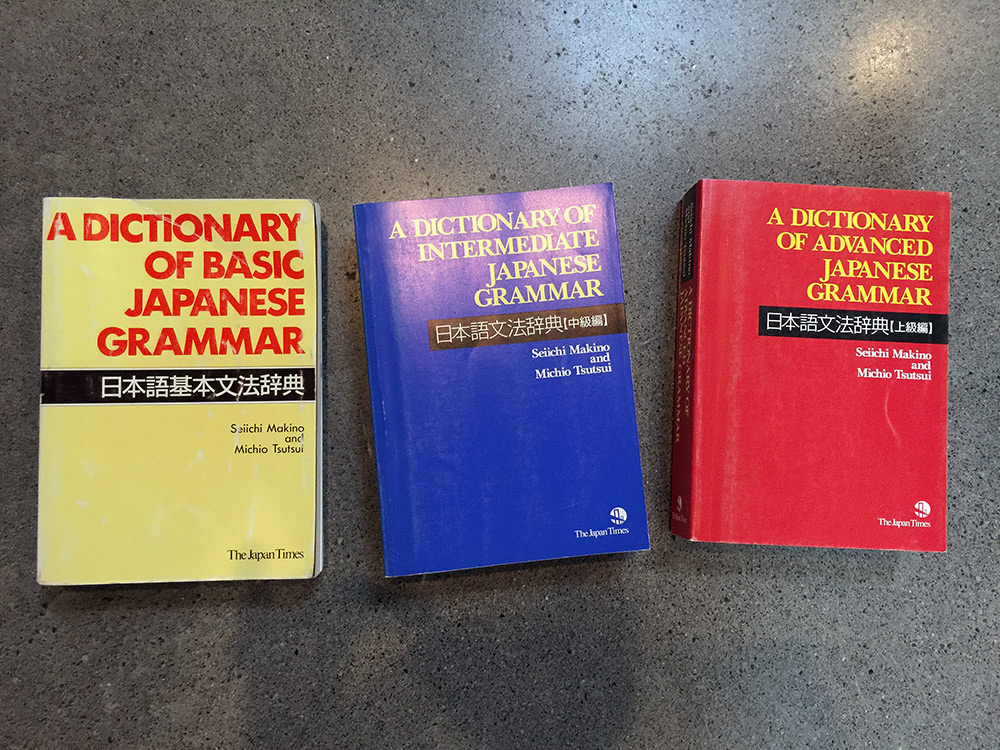
My main method for learning kanji was taking my (paper) kanji dictionary, turning to the Joyo appendix, and learning the characters grade by grade, making index cards for each character with both on [Chinese] and kun [Japanese] readings and some common words using it. That works, but it’s not ideal.
I wish I had a simple way to learn kanji I could share. A book or other resource that explains what the initial ideograms are depicting visually helps your brain make sense of the shapes. Flash cards — be they commercial, homemade, or accessed via the Anki app — definitely help.
Again, resources for the JLPT can help: They’re designed to impart a bunch of information efficiently. A paper kanji dictionary, if you can afford it, *might* help depending on your style of learning, as you can learn a lot of information by osmosis in looking stuff up (I have the NTC dictionary, which includes a lot of ancillary information). You will need to learn stroke order. You will need to learn both the on and kun readings for each character. Learning the SKIP method of breaking down a character can help you look stuff up when visual recognition apps fail.
Also, there’s nowhere else to put this, but: I worked on the recent translation of PSO2. I am officially credited in the staff roll as a Language Specialist! (Recorded evidence at 2:10 here!: https://www.youtube.com/watch?v=Iu0q8Y_fe88) I was just one of many hardworking folks – but I was one of them!
Back home to Phantasy Star Generation 4 Project Page & Podcast
